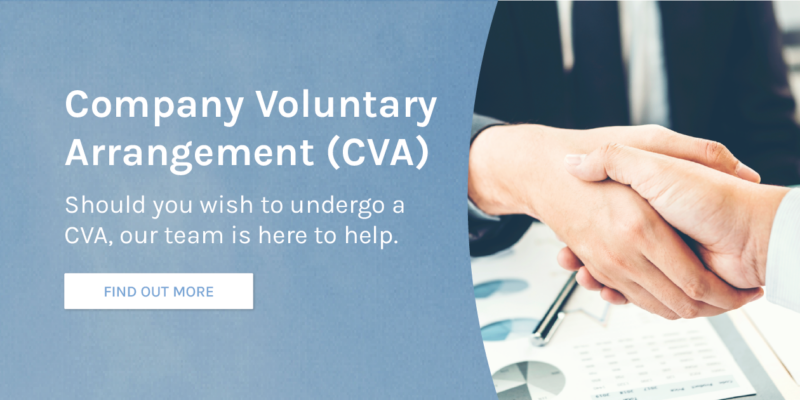Debt can weigh heavily on business directors and owners, especially when financial challenges have arisen unexpectedly. One of the most common questions asked by company directors is: how long before debts are written off? This guide delves into the specific timeline for writing off debts, the legal processes involved, as well as the implications for business owners and directors in the UK.
If you’re a company director facing financial pressures, understanding how to write off debt and when debts become statute barred is crucial. Let’s explore the key considerations:
What is Writing Off Debt?
Writing off debt means a creditor has decided to stop pursuing outstanding amounts owed to them. This typically happens when the amount owed is deemed ‘uncollectable’, or when the legal time limit for how long before debts are written off has passed. For businesses, write-offs can occur in various ways, including via statute-barring, insolvency proceedings, and creditor negotiation.
The three most common ways business debt is written off are:
- Creditor Negotiation: Creditors may agree to reduced payment terms or even to forego part of the debt if it ensures they recover at least some of the money owed. This is often facilitated through a Company Voluntary Arrangement (CVA).
- Insolvency Proceedings: Some insolvency processes, such as administration and receivership can result in a set amount of debt being partially or fully written off.
- Statute Barred Debt: Under specific conditions, creditors can lose the right to enforce repayment of a debt.
On a personal level, writing off unmanageable debt will involve solutions like bankruptcy, Debt Relief Orders, and Individual Voluntary Arrangements (IVAs).
How Long Before Debts Are Written Off in the UK?
Understanding how long before debts are written off in the UK requires clarity on various processes and regulations. The timeline depends largely on whether the debt becomes statute-barred, falls under insolvency proceedings, or is resolved through negotiations.
The Limitation Act 1980 provides specific rules around the enforceability of debts, which can be crucial for businesses and individuals aiming to navigate their financial obligations responsibly. Exploring these timeframes in detail can help you mitigate risks and make informed decisions.
1. Statute-Barred Debts
In the UK, statute-barred debts refer to debts that creditors can no longer enforce through legal action. While the debt does still exist, it becomes unenforceable under specific conditions. Additionally, certain debts, such as HMRC tax liabilities or those stemming from personal guarantees, are not subject to statute-barring and will remain enforceable indefinitely.
When Is Debt Statute Barred?
Debt becomes statute-barred when the limitation period — typically six years in England and Wales — expires. This means that if no payment or written acknowledgement of the debt has occurred during this time, creditors are prevented from legally enforcing repayment via court action.
For a debt to be statute-barred it has to meet a strict set of conditions:
- No payments can have been made within six years
- The debtor did not acknowledge the debt in any writing during this period
- The creditor cannot have initiated any legal proceedings
If all of the above applies, the debt may become unenforceable. However, while the creditor may not be able to force repayment, there’s nothing preventing them from contacting you in order to request repayment — they are only actually banned from pursuing legal action.

How Do I Know If My Debt Is Statute Barred?
Determining if your debt is statute-barred can provide clarity on your financial obligations and options. A debt may be statute-barred if a certain amount of time has passed without payment or written acknowledgment. Understanding this process is crucial, particularly for business owners, as personal guarantees can complicate matters even when company debts are written off.
To determine whether your debt is statute-barred:
- Check on the data the last payment or written acknowledgement was made
- Review any and all correspondence with creditors
- Consult a specialist for additional clarity on how your situation could and should be handled
For business owners, it’s also particularly important that you identify whether a debt is tied to a personal guarantee or not, as this can significantly impact you personally, even if the company itself is insolvent and the debt is written off.
2. Writing Off Debts With Insolvency Proceedings
For struggling businesses dealing with unmanageable financial arrears, if the pressure is beginning to tighten, insolvency proceedings could offer a formal and effective pathway to writing off the debt.
The primary options for writing off a debt via insolvency proceedings are:
- Administration: Administration temporarily shields a business from legal action while restructuring options are pursued. Often, this process results in partial debt write-offs.
- Liquidation: When a business is forced to close down, liquidation may result in unsecured debts being written off after company assets are distributed to creditors.
- Company Voluntary Arrangements: CVAs allow a business to repay creditors over a fixed period, often resulting in some debts being written off.
It’s important to note that directors must always act in the best interests of creditors during insolvency proceedings to avoid the possibility of consequences ranging from personal liability to disqualification.
3. Timeframes for Business Debt Write-Off
While the six-year rule applies to most business debts, understanding how long before debts are written off will depend on the specific processes at play. It’s vital that you understand the timings associated with the most common debt write-off solutions before you begin recovery planning.
While the six-year rule applies to most business debts, understanding how long before debts are written off will depend on the specific processes at play.
CVAs will typically span a period of 3-5 years before the debt is resolved, Administration timelines will vary but are generally considered to be shorter than CVAs, and liquidation debts are typically written off once the process is completed — which can take from several months up to a year — though the business will generally be forced to close at this stage.

How to Write Off Debt: Practical Steps For Company Directors
When facing financial difficulties, taking practical steps can make a significant difference in managing your debts effectively. From negotiating with creditors to exploring formal insolvency solutions, the right approach can help ease the burden and protect your business. Seeking professional advice ensures you make informed decisions tailored to your unique financial situation.
Here are some practical steps you should include:
Step One: Negotiate with Creditors
People are often surprised to hear that creditors are actually often more willing to negotiate repayment terms than they think. This is because, if they refuse to discuss terms with a debtor, they will often run the risk of not being able to recover anything at all.
Options you may be able to negotiate include:
- Reducing the total amount owed
- Freezing interest and additional charges
- Extending repayment deadlines
This approach works best if you are proactive and engage your creditors as soon as possible, providing as clear a picture of your financial situation as possible. This level of transparency will go a long way to building goodwill between you and your creditor, vastly increasing the likelihood that you will be able to reach an agreement.
2. Explore Insolvency Solutions
Insolvency processes such as CVAs or administration can be vital in helping businesses to turn down the building pressure by reducing or writing off debts, while also being able to continue to trade — further helping reduce the financial burden.
Consulting with a licensed insolvency practitioner is essential if you wish to understand the best course of action relative to your situation.
3. Seek Professional Advice
A professional insolvency expert will assess your company’s financial health before recommending a tailored solution that helps in managing your debts effectively. These specialists can also assist you in the process of negotiating with creditors, potentially further reducing stress. Get in touch for more information.
Common Myths About Writing Off Debt
Misunderstandings about debt and insolvency are common, often leading to unnecessary stress or missed opportunities for financial recovery. Dispelling these myths is crucial for individuals and businesses to make informed decisions about managing their debts and exploring potential solutions. The reality of debt management is far more nuanced than many people realise.
From the timeline for debt statute-barring to the implications of writing off debt, it’s important to separate fact from fiction. Similarly, insolvency is often wrongly perceived as the end of the road for a business, when in fact, it can serve as a valuable tool for recovery and stability. Understanding the truth behind these common misconceptions is the first step toward taking control of your financial future.
1. “All Debts Are Written Off After Six Years.”
This is not necessarily true for all debt. While many commercial debts will be statute-barred after six years, others like tax debts and mortgage payments will have longer timeframes and are not subject to statute-barring.
2. “Debt Disappears Once Written Off.”
Even if your debt is written off, it may still appear on credit reports for another six years. This may affect your ability to secure future funding or credit.
3. “Insolvency Equals Failure.”
A common misconception we see, entering insolvency does not mean your business has failed. It doesn’t even necessarily mean the end of the company.
Insolvency solutions like CVAs or administration are an incredibly useful pathway to potential recovery while addressing your unmanageable debts in a responsible and honest manner.
Implications of Writing Off Business Debt
Writing off your business debt can provide some much-needed relief, but it’s not without its consequences:
- Credit Impact: Having debts written off via insolvency can affect creditworthiness, making it hard to borrow money in the future.
- Tax Implications: Written-off debts could have possible tax consequences for both businesses and individuals.
- Personal Guarantees: Directors who have provided personal guarantees may still be held liable for any business debt, even if the company were to enter insolvency.
Act Early and Manage Your Debt Effectively
For anybody involved in business, debt can feel overwhelming and highly stressful. Understanding the basic rules around how long before debts are written off, and looking to take proactive steps to manage any such financial challenges, is pivotal.
Consulting insolvency experts can help to clarify what your available options are, and assist you in determining the most appropriate solution based on the specifics of your situation.
So whether you’re exploring insolvency options, looking to negotiate with creditors, or are hoping to determine if a debt is statute-barred, seeking professional assistance early on can save you significant time, money, and stress.
Are you a business owner or director struggling to deal with debt? Contact our expert team today for a confidential consultation. We’ll help you to navigate your options and regain control over your finances and your future.




